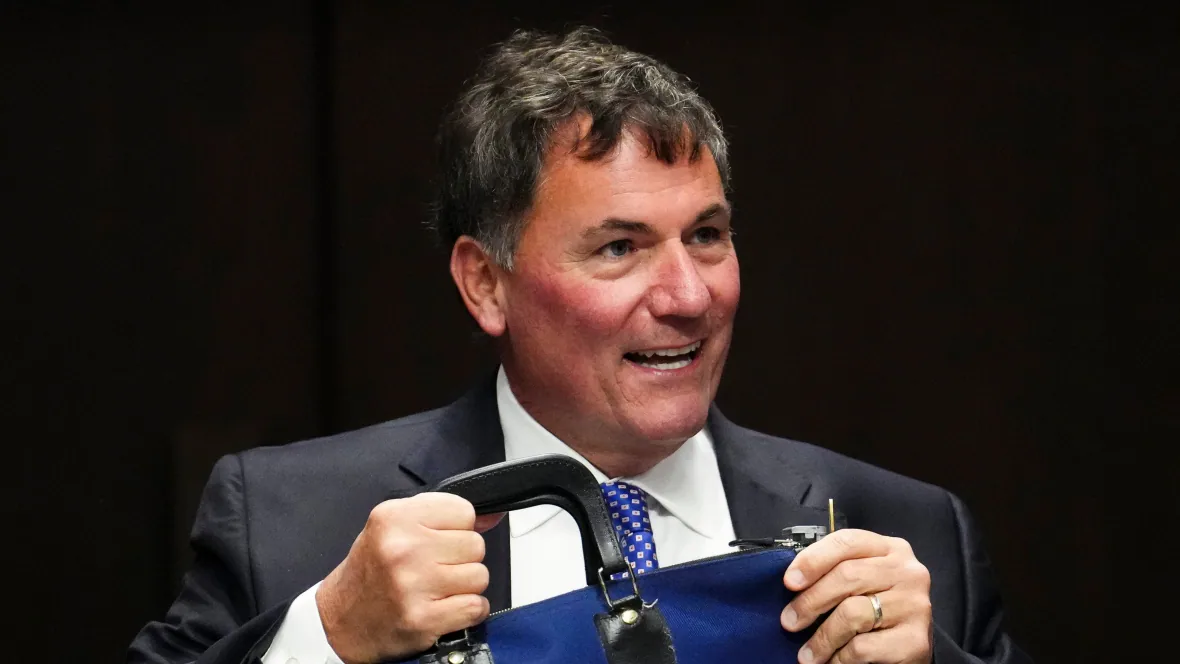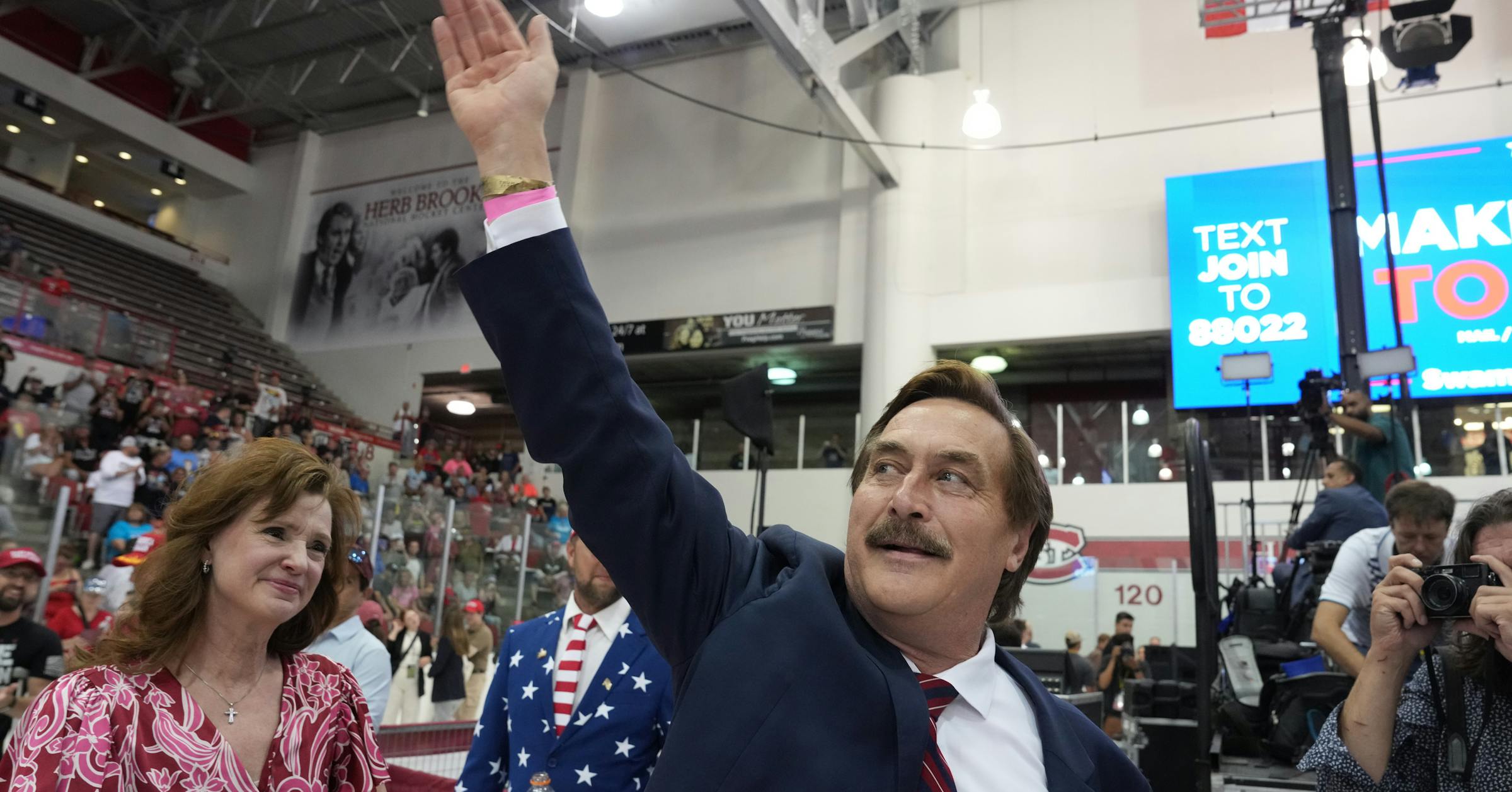By John Paul Tasker
Copyright cbc

Canada-U.S. Trade Minister Dominic LeBlanc said Thursday the federal government is still holding out hope the two countries can reach a deal on punishing American tariffs before the Canada-U.S.-Mexico Agreement (CUSMA) comes up for a review next year.
Speaking to the Senate’s foreign affairs and international trade committee, LeBlanc said he and other officials are in regular contact with their American counterparts about brokering a resolution to the ongoing trade dispute.
“I’m not seeing a dead end in those conversations,” LeBlanc said.
The North American trade partners have launched domestic consultations on renewing CUSMA — a potentially long and drawn out process that is required under the text of the deal U.S. President Donald Trump hashed out in his first term.
LeBlanc said Canada would like to see some sort of agreement on the tariffs separate from the CUSMA renegotiation.
“I’m hoping we can get progress before the review process formally engages. But time will tell us if my optimism is misplaced,” LeBlanc said.
While some other U.S. trade partners like the European Union and the U.K. have reached deals with Trump by agreeing to across-the-board tariffs on their goods, LeBlanc said Canada will not accept “any deal with a baseline tariff.”
LeBlanc said American businesses, particularly in manufacturing, are seeing margins erode as they pay higher prices to bring in must-have Canadian products like aluminum. In 2024, Quebec alone supplied 65 per cent of the U.S.’s aluminum imports, according to the Aluminium Association of Canada.
LeBlanc said companies like Ford Motors, which relies on Canadian materials to build its popular F-150 trucks, will be bending the ear of the Trump administration to broker a deal.
CBC News has spoken to smaller U.S. manufacturers and importers that are facing huge cost overruns as a result of these tariffs who are also lobbying Trump to take a different direction.
“We are confident that the domestic pressure from senators, governors, business and union leaders in the United States will create, potentially, an opportunity for us to come to an agreement with the American administration that’s in the interest of both economies,” LeBlanc said.
Prime Minister Mark Carney and Trump jointly agreed to reach some sort of agreement on tariffs by August — a deadline the two sides blew past with no deal.
Since then, the tariff pressure on Canada has only intensified as the Trump administration imposes its Section 232 tariffs on steel and aluminum and their derivatives and the auto sector.
Just this week, Trump announced new Section 232 levies on lumber and timber, kitchen cabinets, vanities and other furniture and upholstered products, arguing Canadian and other imports are somehow a “national security” threat.
The lumber tariffs are particularly problematic for Canadian producers given the Americans have also imposed countervailing and anti-dumping duties under a different tariff process.
Still, LeBlanc said he was hopeful the two countries can work through these trade issues while warning it could still be a bumpy road ahead.
“The vast majority of these issues are resolvable or can be significantly improved,” LeBlanc said.
Canada to highlight investments in U.S.
LeBlanc said it’s unlikely the Canada-U.S. trade relationship will “go back to where we were a year ago … but I think we can be in a lot better position over time than we find ourselves in today.”
A White House official, speaking to CBC News on background last month, said there hasn’t been any progress on tariffs because Canada “has repeatedly demonstrated a lack of seriousness in trade discussions as it relates to removing trade barriers.”
Trump has railed against Canada’s system of supply management for some agricultural products like dairy, which he has framed as a barrier to getting more U.S. farm goods into the Canadian market.
LeBlanc said Canada is committed to supply management, despite a report in the Globe and Mail this week that the country is weighing giving U.S. dairy producers more access to the Canadian retail market through changes to how quotas are allocated.
“We state privately and publicly we are not going to negotiate that,” LeBlanc said of a system he framed as integral to Canada’s economic and food safety policies.
LeBlanc said Trump and his team are fixated on announcing instances of foreign companies making big investments in the U.S.
The White House website has a running tally of investments announced in Trump’s second term.
The trade minister said Canadian firms invest more in the U.S. than those from just about any other country on Earth and there will be a push to publicize that fact in the coming weeks. “It’s a good story for Canada to tell,” he said.
Conservative Leader Pierre Poilievre meanwhile said Thursday that Carney has been a disappointment on the U.S. trade file.
“He promised he would negotiate a win with the United States by July 21,” Poilievre said at an unrelated news conference on crime. “Where is the win?”



